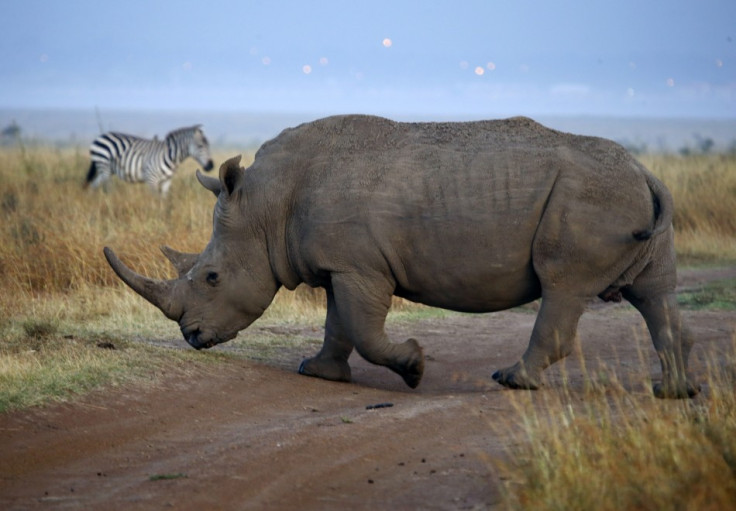Thieves Steal Rhino Horn in South Africa worth £2m

Thieves have stolen 66 rhino horns worth £1.8 million or $2,75 million as demand for the horns in the Far East continues to grow.
The robbers used blowtorches to break into the safe of Johan van Zyl, owner of the Leshoka Thabang Game Reserve in South Africa, where the horns were kept.
He had removed them from living animals and stored them in the safe to prevent rhinos being targeted by poachers looking to profit from the growing illegal market for rhino horns.
The horns are believed to have medicinal properties in Chinese and Vietnamese medicine, although there is no scientific evidence to support this.
Growing demand from the countries' burgeoning middle classes has given rise to an enormous international black market for rhino horn, and has pushed prices up to $43,000 a kilo, making it more expensive than gold.
In South Africa, government permits grant permission to remove and store rhino horns, but their sale is strictly prohibited.
"In my hands it is worth nothing, but in the hands of the guys who have it now, the horns are worth a lot of money," said Mr van Zyl.
South Africa has one of the world's largest populations of rhinos, with the number roaming the country's veld estimated at 21,000.
However, the number being killed by poachers is rising, with 660 killed last year and 800 expected to be killed this year if current rates continue.
Between 1990 and 2005 only 15 rhinos were killed by poachers.
The escalation has prompted the South African government to send soldiers to guard national parks.
In Chinese and Vietnamese medicine powdered rhino horn is used to treat ailments ranging from fevers to cancer.
The horns are made out of keratin, the same material as human fingernails.
Some nature reserves have taken to poisoning the horns, so those who consume them would become seriously ill.
In an effort to control the trade and stem the number of rhinos being illegally slaughtered, some South African politicians have advocated legalising the trade in rhino horn.
© Copyright IBTimes 2025. All rights reserved.






















